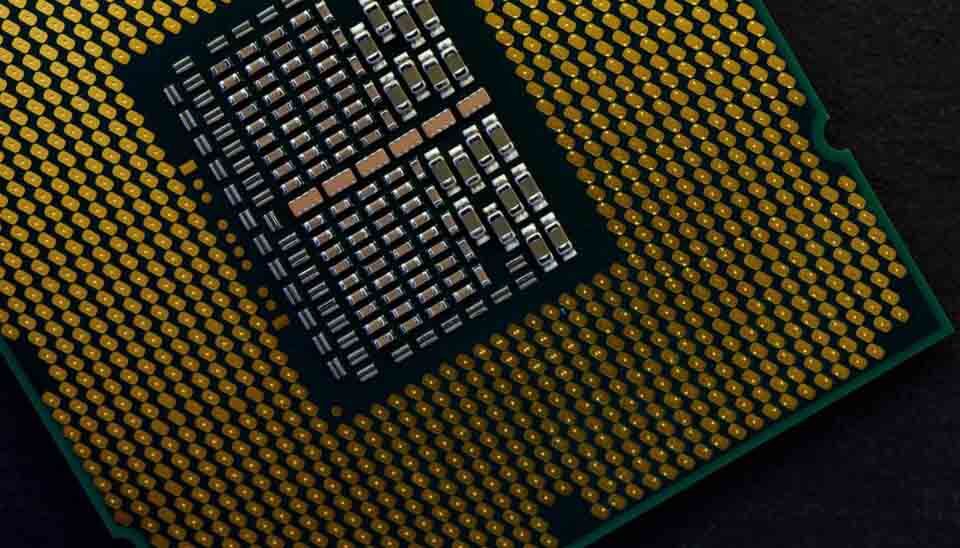Oregon To Benefit From Biden’s $8.5 Billion Computer Chip Plant Funding Plan Through Intel

Intended to increase the U.S.’s global share of advanced chip production from zero to 20%, the Biden administration has agreed to provide chip manufacturer Intel with up to $8.5 billion in direct funding, with an additional $11 billion being made available in loans for computer chip plants in Oregon, Arizona, Ohio, and New Mexico.
Oregon Senator Ron Wyden said that this is good news for Oregon, with the continuous federal investment in the Silicon Forest playing a central role in world-class innovation. The stronger economy in Washington County with statewide ripple effects will benefit Oregonians through employment opportunities.
Commerce Secretary Gina Raimondo said, “We can’t just design chips. We have to make them in America.”
Biden Plans To Talk Up Investment At Intel’s Arizona Campus
The 2020 election saw Biden beat Trump in Arizona with a small margin of 49.4% to 49.1%. Arizona could be a decisive swing state for Biden. President Joe Biden will visit Intel’s Ocotillo campus in Chandler, Arizona on Wednesday.
Biden has previously said that not enough voters know about his economic policies, suggesting that more voters would support him if they knew. Biden says that his policies have led to a resurgence in U.S. manufacturing and job growth and has challenged Trump- who raised tariffs while in the White House and now promises to protect U.S. factory jobs from China. In pushing for the investment, Democrat lawmakers indicated their concern over efforts by China to control Taiwan, which produces over 90% of advanced computer chips globally.
With just 34% approving of Biden’s economic leadership according to a February poll by The Associated Press-NORC Center for Public Affairs, the lingering effects of inflation, which hit a four-decade high in 2022, has hurt the President, who enjoyed 52% approval in July 2021, despite signs of recovery under his leadership. The Intel projects will partly be funded by the bipartisan 2022 CHIPS and Science Act, shepherded through Congress by the Biden administration.
Intel Chip Funding
The fourth and biggest investment under the CHIPS law so far, it’s hoped that this additional government support will enable Intel Corp. to invest $100 billion in capital projects over the next five years. Pat Gelsinger, CEO of Intel, indicated that around 25% will involve building and land, and roughly 70% will be used for equipment. Gelsinger said the CHIPS Act is “the most critical industrial policy legislation since World War II.”
While Gelsinger would like to see a sequel to the 2022 law to make additional funding available to the industry, the Santa Clara, California-based company will use the current round of funding in four different states:
- In Hillsboro, Oregon: Modernizing facilities and expanding existing facilities to increase clean-room capacity and utilize advanced lithography equipment.
- In Chandler, Arizona: Building two new chip plants and modernizing an existing one.
- In New Albany, Ohio, just outside the state capital of Columbus: Establishing two advanced plants
- In Rio Rancho, New Mexico: Turning two of its plants into advanced packaging facilities.
Officials said that the substantial investment will support several thousand new permanent and construction jobs.
Benefits of Computer Chip Plant Funding
Biden administration officials said the computer chip companies would not invest domestically at their expected scale without government support. They said that Intel funding would result in 30,000 manufacturing and construction jobs. Making workforce training and access to affordable child care a priority in agreements to support companies, Intel, under the Commerce Department, among other efforts, will commit to local training programs and also increase the reimbursement amount for its child care program.
Related: $10 Million In Training Funds For Oregon’s Semiconductor Industry
Although the U.S. designs advanced chips, it has not made them domestically and this has emerged as a national security and economic risk. Commerce Secretary Gina Raimondo said this deal will see the U.S. produce 20% of the world’s most advanced chips by 2030.
